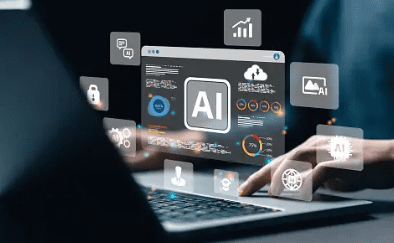For video game makers, it is an uncertain world today, all thanks to artificial intelligence, or AI. Jess Hyland is a video game artist, working for around 15 years. The fear of losing this job due to AI always resides within her. “I’m very aware that I could wake up tomorrow and my job could be gone,” says Jess.

When the pandemic started, much more intensive work began in gaming. The companies cashed in millions of dollars, expanded their operations, including acquiring other firms. However, sadly, many since laid off workers and some studios shut down. Jess, as of now, describes the industry as “shaky.”.
“Everyone knows someone who’s been laid off. There’s lots of worry about the future,” says Jess, who has seen plenty of folks lose their jobs and fears more closures.
Company bosses think AI can save money and make games better. Everyone can see that big companies such as Nvidia, Electronic Arts, and Ubisoft are investing in AI. They say it can save time and level industry practices, let artists be more creative, and thus give players more fulfilling experiences. For example, Nvidia’s AI-driven avatars are considered to be a taste of the potential future of gaming.
Not everyone agrees, though. “The people who are most excited about AI enabling creativity aren’t creatives,” says Jess. She is part of a group that looks at how AI affects workers.

Instead, he is worried that the technology is creating a system in which AI will save the company money as it consumes labor. She also shares that some people she knows have lost work because of AI. She has also heard from others whose jobs are changing in ways they don’t care for. Jess says the bigger worry is that “jobs are going to change, but not in a good way.” Continuing on, he mentions that rather than the efforts of an artist being supplemented, they fear they could end up supplementing the AI’s efforts.
AI is actually quite talented at a few tasks; for example, it does very well at generating pictures from text. In other ways, perhaps the most obvious, neither is it particularly good at drawing hands and chairs. “We’re fixing the stuff AI makes, which is not why I wanted to make games,” she said.
Video games go far beyond technology, however. They are art, plain and simple: a melting pot for artists, musicians, writers, and countless others. A consistent worry is that AI will be used to minimize, rather than liberate, the work of such creatives. Somebody who used to work on big games like Runescape is Chris Knowles, who now runs a studio called Sidequest Ninja. He says small studios don’t like AI as much. They’re worried that AI will make it much easier for others to copy their games, with online stores already flooded with clones of more original titles. “If you’re going to have to hire actual human artists to fix the output, why not harness their creativity and make something new that connects with players?” says Chris.
Chris also fears that AI will use too much electricity. Generative AI needs colossal power to be operated, which can be a huge concern. There are legal problems too. AI uses millions of pictures and words from the internet. To some, it has the feel of theft. Jess believes it amounts to “mass copyright infringement.”

Despite these misgivings, corporates remain keen on AI. And they want to apply it to increase speed and reduce costs for making games. Studios are researching systems that are trained on in-house data, and third-party players, advertising tools they tout as “ethical,” claim to work things off only authorized sources. But even then, the fear is that AI will be used to turn out assets such as artwork and 3D models at scale, and the expectation on those workers will be to produce more output. “The more content you can make, the more money you can make,” Jess says.
Jess’s attitude sums up one of many, as it relates to the future of video games with AI. While some feel AI is something to further help in making games better, others are still worried just the same that it will lead to many fewer jobs and with less creativity. The whole game industry is changing, and nobody really knows what the future will be like. In reality, will AI be a helper or a hindrance? Well, only time will tell.








